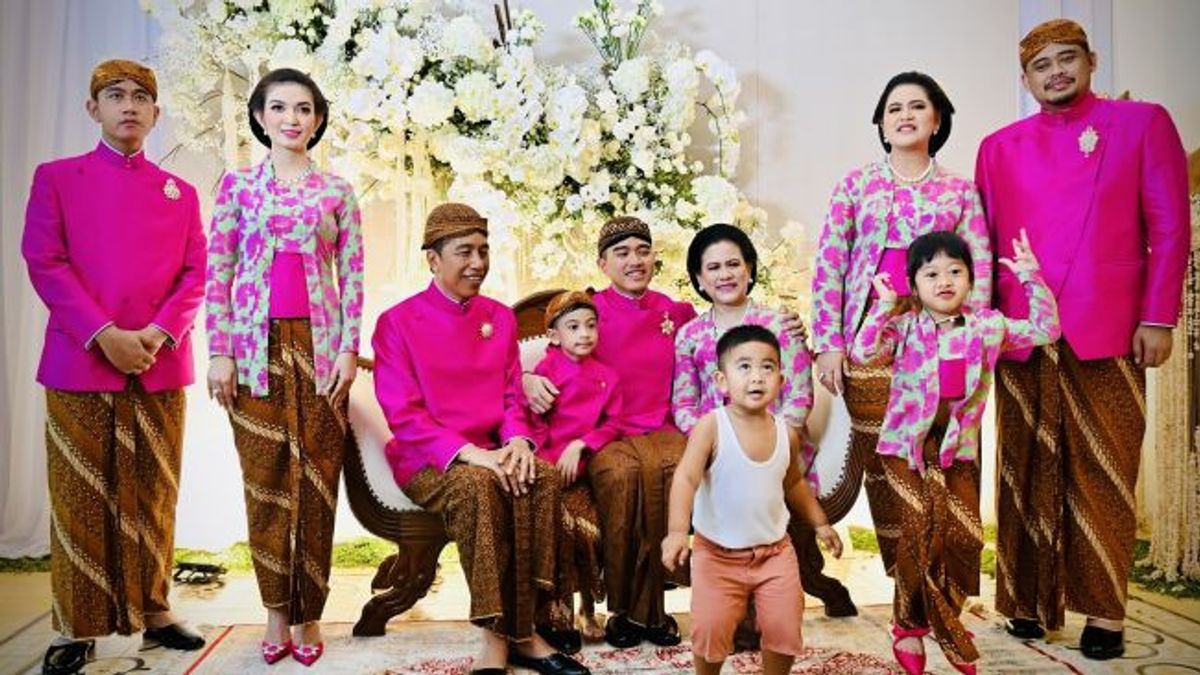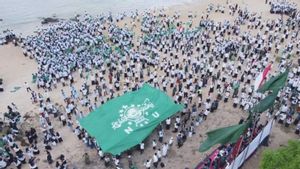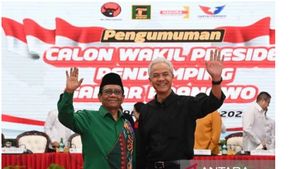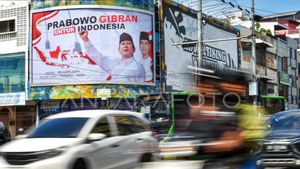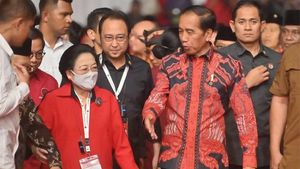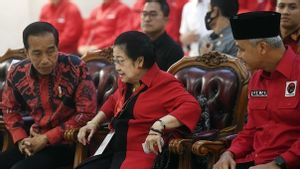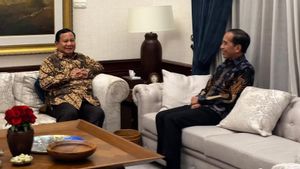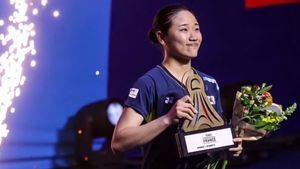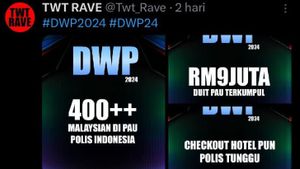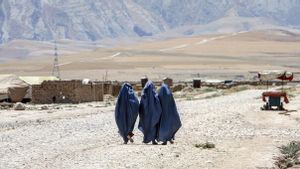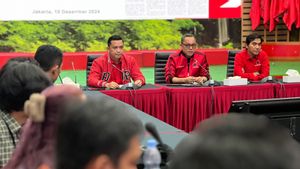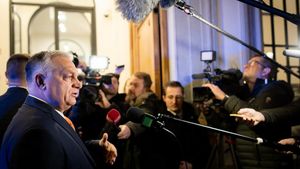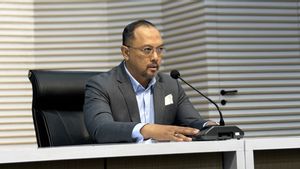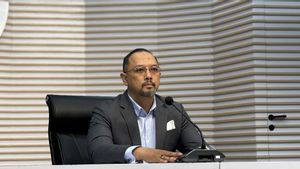JAKARTA The Constitutional Court's decision granted a judicial review or judicial review of Article 169 letter q of Law Number 7 of 2017 concerning General Elections regarding the age limit for Presidential and Vice Presidential Candidates aged at least 40 years, reopening the issue of dynastic politics in the style of President Jokowi.
On Monday (15/10/2023) the Constitutional Court granted the case Number 90/PUU-XXI/2023 which Almas Tsaqibirru Re A requested so that it changed the nomination requirements for the presidential and vice presidential candidates to a minimum age of 40 years or once and is currently in the position elected through the general election including regional head elections. This means that people who are not yet 40 years old can advance to become presidential or vice presidential candidates as long as they are experienced as regional heads or other positions who are elected through elections.
"Granted the petitioner's petition in part," said Chief Justice of the Constitutional Court Anwar Usman during a trial at the Constitutional Court Building, Jalan Medan Merdeka Barat, Gambir, Central Jakarta.
After the decision, the public later claimed that this was deliberately made to smooth the way for Gibran Rakabuming Raka, who is the eldest son of President Jokowi to run in the 2024 presidential election.
Gibran is among regional heads under the age of 40 who are eligible to run in the 2024 presidential election contestation. He currently occupies the position of Mayor of Surakarta.
At the same time, Gibran's name is also widely associated with Prabowo Subianto's presidential candidate, who has yet to declare his assistant in next year's presidential election. So it's no wonder that the Constitutional Court is then considered to have participated in the development of dynastic politics in the country.
Dynasty politics is a political phenomenon of the emergence of candidates from the family environment of the head of government who is in power.
Jokowi's dynastic political behavior has been smelled since Gibran and his brother-in-law, Bobby Nasution, plunged into politics in the 2020 Pilkada. Both then won the seats of the Mayor of Solo and Medan.
Dynasty politics is actually not new. In the United States, for example, which is famous for the Kennedy dynasty and the Bush dynasty. While in the country, for example, there is the Queen Atut dynasty which fills a number of strategic positions in Banten.
The Kennedy clan is one of the most popular political dynasties in the United States. More than half a century of this dynasty occupies an important position in government. Meanwhile, the Bush dynasty has placed two members of its family as President of the United States: George HW, who occupied the White House between 1988 and 1992 and his son George W. Bush who became the 42nd president.
Another country that has also been trapped in a political dynasty is India which was once controlled by the Nehru-Gandhi dynasty. In Pakistan, the Bhutto dynasty was so powerful and finally North Korea was led by trio Kim.
Jokowi's Dynasty Politics Without Process
What makes the political dynasty in the style of Jokowi noisy? According to the founder of the KedaiKOPI Survey Institute, Hendri Satrio, there are clear differences that make Jokowi's political dynasty candidates less accepted in society.
According to him, Jokowi's children plunged into political arenas only with the capital of his father's power as president.
"If you want to compare with Puan Maharani (Megawati Soekarnoputri's son), it's very different. Puan started her career as an ordinary member, then a member of the DPR, the head of the faction, then she became a minister and later became the Chair of the DPR. So indeed there are stages that are being passed," Hendri told VOI.
"The same thing with Pak SBY's family, AHY was forged first. And most importantly AHY went to the Pilkada event when his father no longer served as president," Hendri added.
"While the Jokowi dynasty all utilizes power relations, its father becomes president, its son advances to become Mayor of Solo, Mayor of Medan, Chairman of PSI and now wants to become vice president," said Hendri again.
The same thing was also expressed by Karyono Wibowo as Executive Director of the Indonesian Public Institute (IPI) and Political Communication Researcher Effendi Gazali.
Karyono highlighted the difference in the process of gaining power in the political arena that Jokowi's family underwent with what Megawati Soekarnoputri got.
"What distinguishes Jokowi's political dynasty from others is how his family processes to enter politics. What is his experience before getting a position," Karyono told VOI.
"If we look at Megawati, this is going through a long process, she has been in politics for a long time before becoming president. So that's all, please differentiate," he said.
"Meanwhile, Gibran still smells like a crash, he's really new, so that it creates a perception while his father is still in office, he takes advantage of this position," said Karyono.
اقرأ أيضا:
Effendi Gazali, who was contacted separately, said, What distinguishes the ways is whether they are done elegantly, or ambiguously, with many meanings, interpretations, and so on.
"Also maybe the jump was too fast, was there a PDIP and PD children who advanced regional heads, especially the Vice President when their father or mother became president?" said Effendi again, explaining the differences in the dynastic politics in the style of Jokowi with the Democratic Party and PDIP.
Meanwhile, Deputy Chairperson of the Gerindra Party, Habiburokhman, also commented on the political accusations of the Jokowi dynasty. He considered the determination of Kaesang Pangarep to be the chairman of PSI far from the political term Jokowi dynasty. He also gave an example of several children of political party leaders who have strategic positions in the party.
"Yes, it's far away, for example Mbak Puan, the daughter of Mrs. Mega, you call it dynastic, right? Mr. AHY, Mr. SBY, is it dynastic politics, isn't it? Mega's mother, Bung Karno's son, dynastic politics, right? Yes, what is clear is that this is not something that is negative, this is very positive," said Habiburokhman at the Parliament Complex, Senayan, Jakarta, Tuesday, September 26.
The English, Chinese, Japanese, Arabic, and French versions are automatically generated by the AI. So there may still be inaccuracies in translating, please always see Indonesian as our main language. (system supported by DigitalSiber.id)
